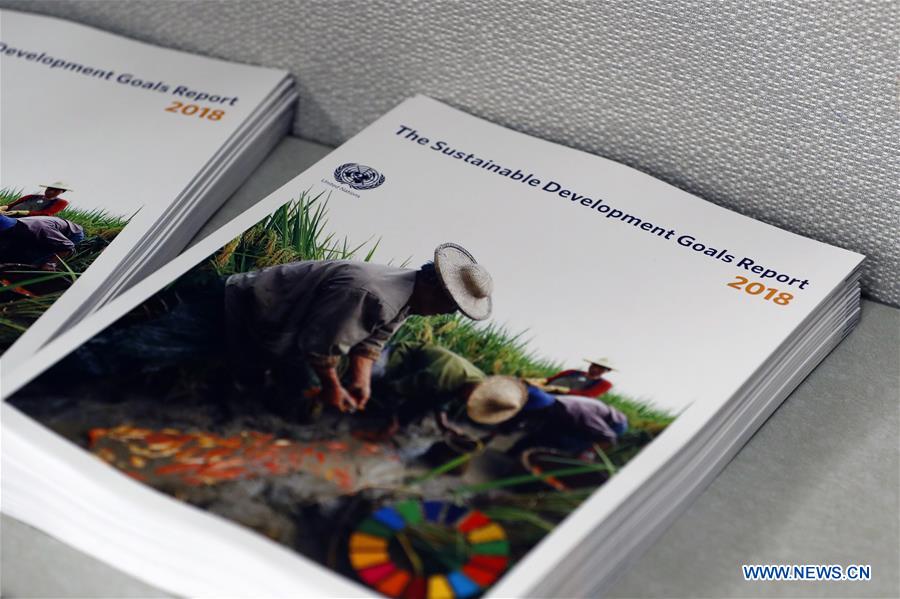Conflict, climate change major factors behind growth in hunger, displacement: UN report
Xinhua,June 21, 2018 Adjust font size:

Copies of Sustainable Development Goals Report 2018 are seen at a press briefing at the UN headquarters in New York, on June 20, 2018. Conflict and climate change are the major contributing factors leading to growing numbers of people facing hunger and forced displacement, as well as curtailing progress toward universal access to basic water and sanitation services, the newly-launched UN Sustainable Development Goals Report 2018 said Wednesday. (Xinhua/Li Muzi)
Conflict and climate change are the major contributing factors leading to growing numbers of people facing hunger and forced displacement, as well as curtailing progress toward universal access to basic water and sanitation services, a UN report said Wednesday.
The newly-launched Sustainable Development Goals Report 2018 said that there was an increase of 38 million more hungry people in the world, rising from 777 million in 2015 to 815 million in 2016, and that conflict is one of the main drivers of food insecurity in 18 countries.
In 2017, the world experienced the costliest North Atlantic hurricane season on record, driving economic losses attributed to the disasters to over 300 billion U.S. dollars.
At the same time, the report found that overall more people are leading better lives than before, as the proportion of the world's workers living with their families on less than 1.90 U.S. dollars a day declined from 26.9 percent in 2000 to 9.2 percent in 2017.
The under-five mortality rate dropped by almost 50 percent between 2000 and 2016 and in the least developed countries, the proportion of population with access to electricity more than doubled during that same period, the report said.
However, in 2015, 2.3 billion people still lacked even a basic level of sanitation service and 892 million people continued to practice open defecation, the report said, adding there were 216 million cases of malaria in 2016 compared to 210 million cases in 2013.
Moreover, close to 4 billion people were left without social protection in 2016, the report pointed out.
The report presented an overview of progress toward achieving the 2030 Agenda for Sustainable Development, which consists of 17 goals and 169 targets. The agenda was adopted at the UN Sustainable Development Summit on Sept. 25, 2015.